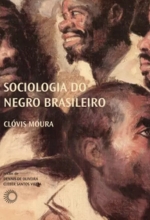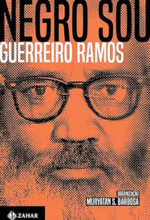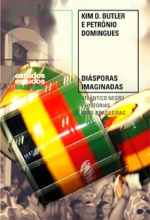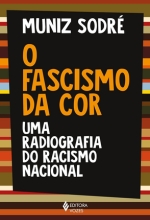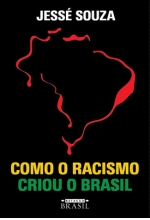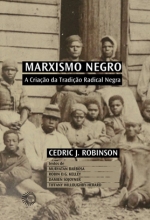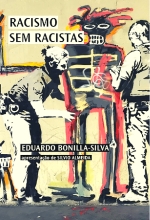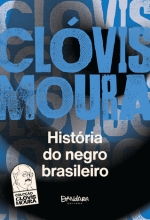Abstract: The book Tornar-se negro: ou As vicissitudes da identidade do negro brasileiro em ascensão social, by Neusa Santos Souza, based on her master’s research, examines the psychological and social impacts of racism on black people seeking social ascension. Innovative study, points to overcoming supposed racial inferiority and the denial of black identity. Keywords: Racism, […]
Abstract: Sociologia do Negro Brasileiro, by Clóvis Moura, criticizes “racial democracy” and explores post-abolition black resistance. Initially published in 1988 and republished in 2019, the work is fundamental in the fight against racism, in addition to highlighting the importance of black intellectuals in Brazil. Keywords: Racial Democracy, Black Resistance, Sociology. The first edition of Sociologia
Resumo: Negro sou: a questão étnico-racial e o Brasil – ensaios, artigos e outros textos (1949–1973), organizado por Muryatan S. Barbosa, é uma compilação de textos de Alberto Guerreiro Ramos que explora a questão étnico-racial e o Brasil entre 1949 e 1973. A obra ressalta a contribuição de Guerreiro Ramos nos debates raciais e sociais.
Abstract: Diásporas Imaginadas: Atlântico Negro e Histórias Afro-brasileiras, by Kim D. Butler and Petrônio Domingues, explores the Afro-Brazilian diaspora and experience, aiming to reconstruct and examine aspects of this relationship. Published in 2020, it criticizes essentialist and nationalist approaches, using the diaspora as a theoretical tool to analyze the lives of Afro-Brazilian populations in Afrodiasporic
Abstract: O fascismo da cor: uma radiografia do racismo nacional, by Muniz Sodré, aims to analyze post-abolitionist Brazilian racism. The work is criticized for omitting discussions about religious racism and fascism, in addition to superficially dealing with complex themes, despite being considered useful for social movements and the study of racism. Keywords: Racism, Brazilian Racism,
Abstract: Jesse Souza’s work, Como o racismo criou o Brasil explores the role of racism in the development of Brazilian society, highlighting its effects on social, political, and moral fronts. Souza, an academic writer, provides a perceptive and insightful critique that ignites discussion on racial matters in Brazil. Keywords: Brazilian society creation, racism, and multifaceted racism.
Abstract: The work Marxismo Negro: a criação da tradição radical negra, by Cedric J. Robinson, explores the intersection between Marxism and European radicalism, highlighting the black radical tradition. Criticism point to Marxist reductionism and a etpist view of black intellectual evolution. Nevertheless, it is essential for ethnic-racial studies, indicating reading for black community and adherents
Abstract: The work Marxismo Negro: a criação da tradição radical negra, by Cedric J. Robinson, explores the intersection between Marxism and European radicalism, highlighting the black radical tradition. Criticism point to Marxist reductionism and a etpist view of black intellectual evolution. Nevertheless, it is essential for ethnic-racial studies, indicating reading for black community and adherents
Abstract: In Racismo sem racistas: o racismo da cegueira de cor e a persistência da desigualdade na América, Eduardo Bonilla-Silva explores the concept of ‘color-blind racism’ in the U.S., an ideology that rationalizes racial inequalities without acknowledging structural racism. He critiques the stance of white individuals who deny responsibility for racial disparities. The work is
Abstract: A sociedade desigual: racismo e branquitude na formação do Brasil, by Mário Theodoro, explores the persistent racial inequality in Brazil. Theodoro analyzes how racism is structured in society, exploring areas such as the job market, education, health, urbanization and the binomial violence and justice. He criticizes the invisibility of black people in spheres of
Abstract: Perder a mãe: uma jornada pela rota atlântica da escravidão, by Saidiya Hartman, examines the Atlantic slave trade’s pathways, seeking remnants of the enslaved. Hartman employs “critical fabulation” to bridge historical voids, although her approach has faced criticism for potential overgeneralizations and anachronisms. Nevertheless, it introduces a novel perspective to slavery’s historiography, emphasizing both
Abstract: O Massacre dos Libertos: Sobre raça e república no Brasil (1888–1889) by Matheus Gato examines the impact of the November 17th Massacre on the racialization process in Maranhão post-abolition. The work sheds light on the complexities of racial relations and the manipulation of historical memory, despite some repetitive elements. Utilizing a diverse range of
Abstract: De que lado você samba? raça, política e ciência na Bahia do pós-abolição,” by Gabriela Reis Sampaio and Wlamyra Ribeiro de Albuquerque, scrutinizes racial exclusion in Bahia following the 1888 abolition of slavery. It underscores the employment of scientific racism to negate citizenship rights to black and mixed-race individuals. Despite criticism for its unclear
Abstract: História do Negro brasileiro, written by Clovis Moura, investigates the influence of the black population in the construction of Brazil, emphasizing their struggle from the slavery era to the pursuit of recognition as citizens. Although the work has received criticism for contradictions and generalizations, its value lies in highlighting the historical importance of the


